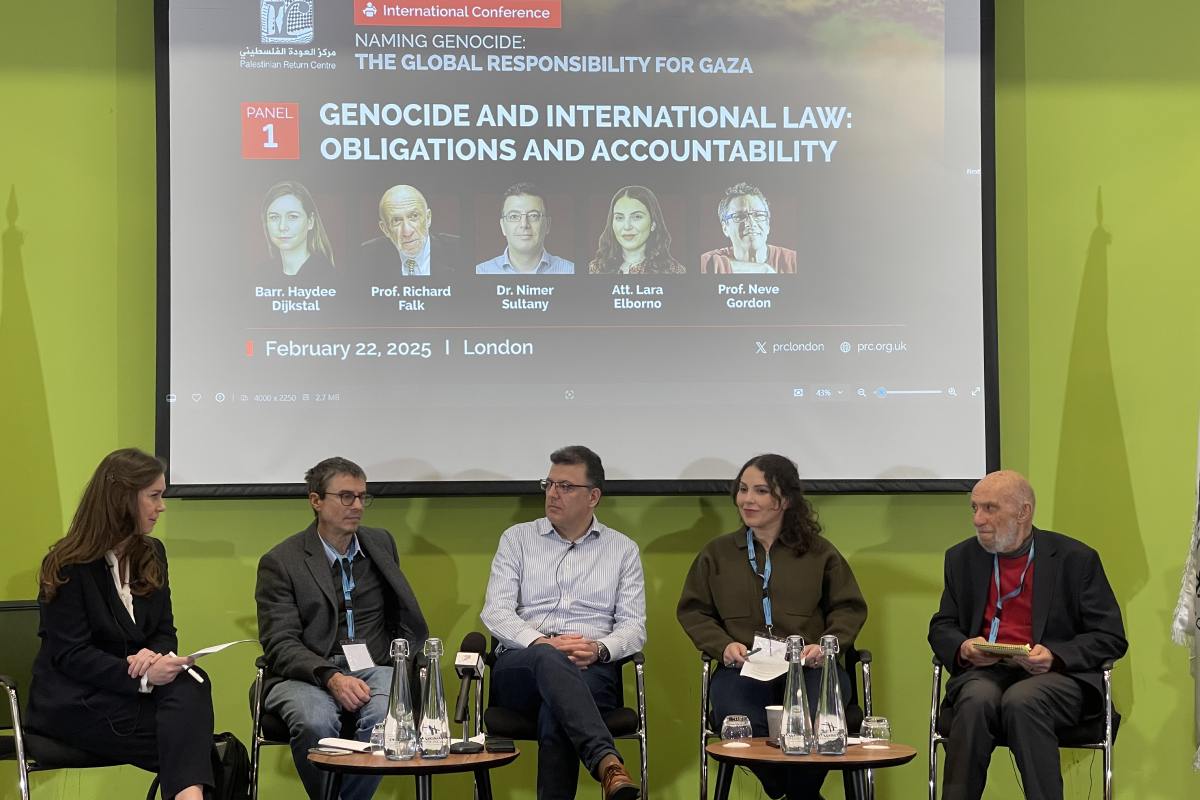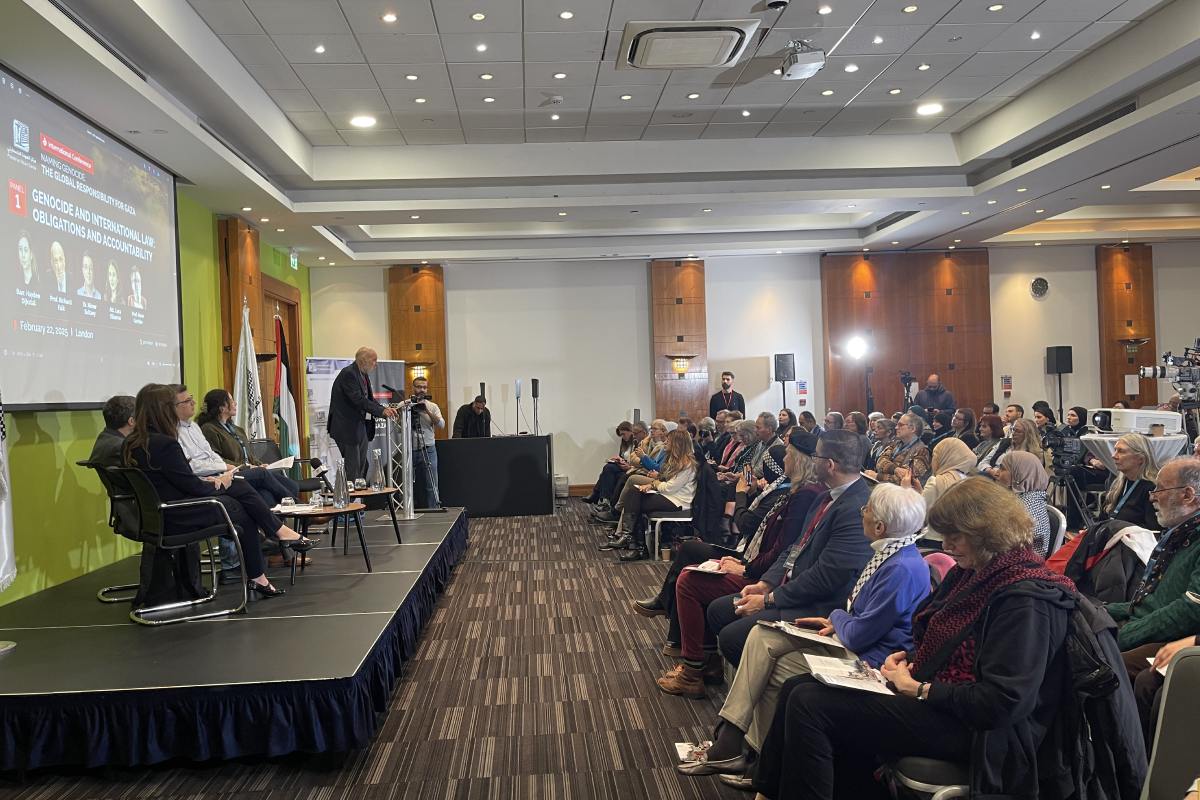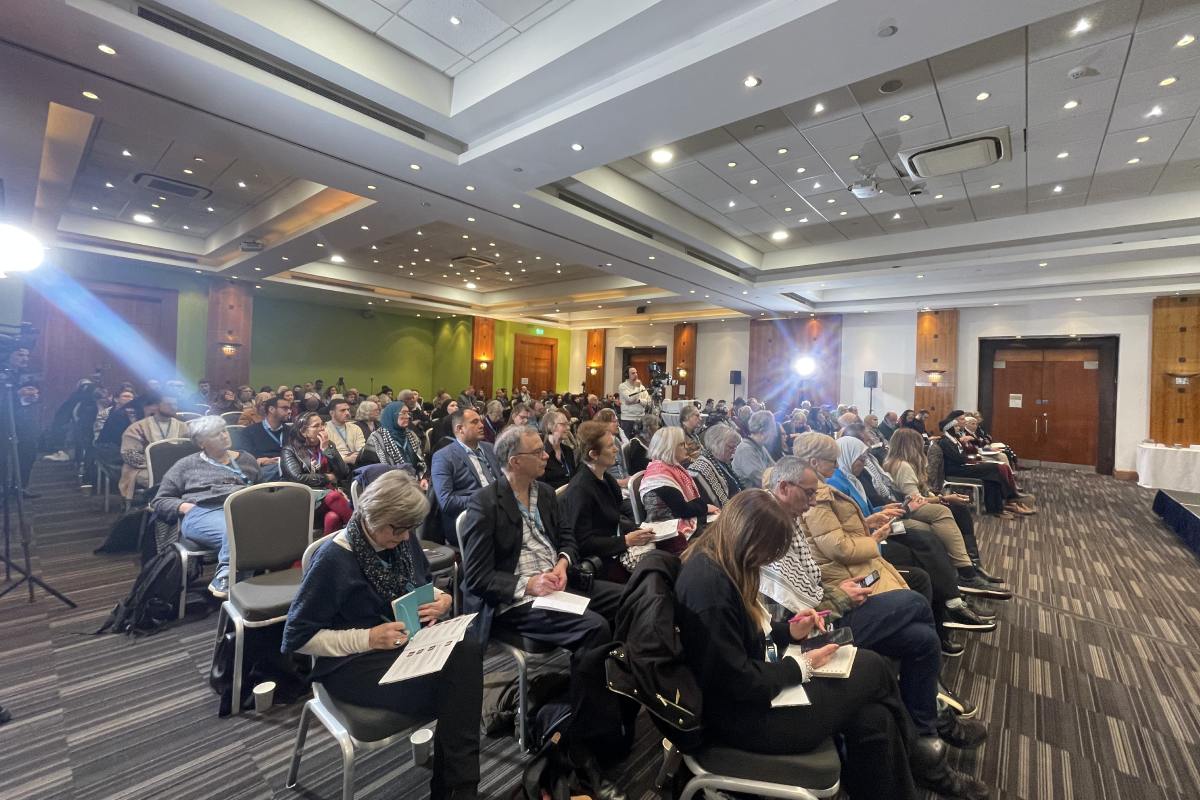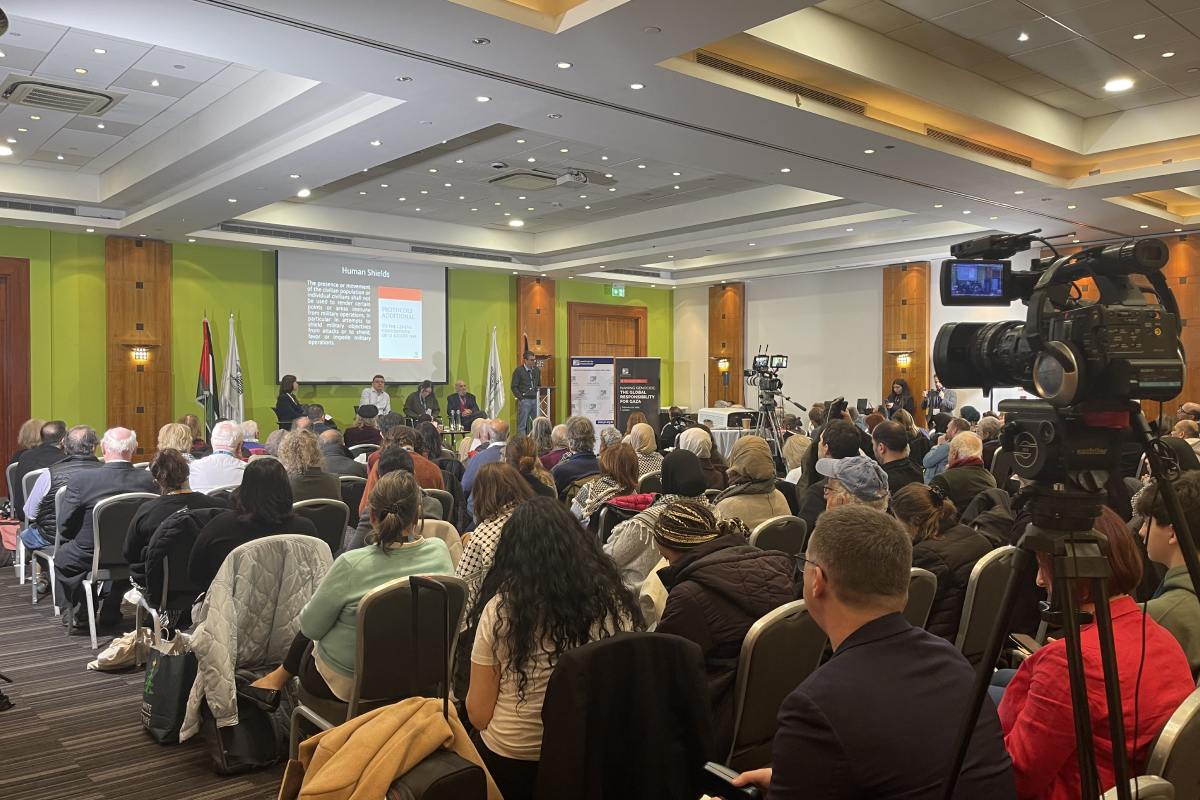Session 1: Unmasking Impunity – Exploring Legal Challenges in Defining Genocide in Gaza

At the Naming Genocide: The Global Responsibility for Gaza conference, the first session delved into the legal frameworks surrounding genocide, exploring how international law addresses—or fails to address—the atrocities unfolding in Gaza. Chaired by Haydee Dijkstal, the session brought together distinguished legal scholars and practitioners who provided nuanced critiques and insights into accountability, enforcement gaps, and the politicisation of legal standards.
Haydee Dijkstal, a barrister in international criminal and human rights law, opened the session by emphasising that the discussion was not about using “genocide” as a rhetorical flourish. Instead, it was a rigorous examination of the legal definition, accountability mechanisms, and prevention strategies under international law. She stressed that while the law is meant to protect civilians and ensure justice, its effectiveness is often compromised by enforcement gaps and political complicity.
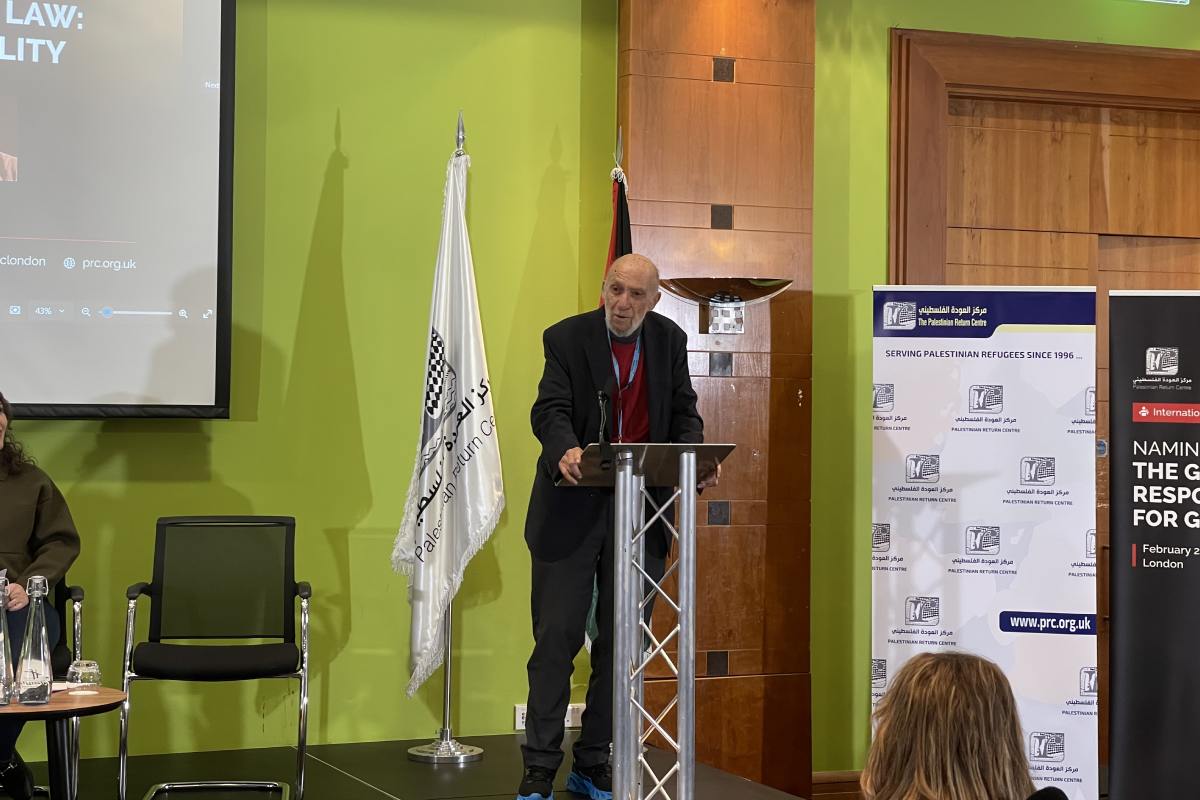
A Progressive Critique – Prof. Richard Falk
Prof. Richard Falk, emeritus of international law at Princeton University, offered a profound historical critique of international law, arguing that it was originally designed to serve the interests of powerful states. He explained that this legal system was crafted to maintain established geopolitical hierarchies and protect dominant national agendas, rather than to serve justice for all. In his view, international law has traditionally preserved the status quo, favouring those already in power, which has long undermined efforts for true accountability and justice.
He further noted that recent anti-colonial struggles and global human rights movements have begun to challenge this traditional framework by repurposing international law as a tool for liberation and accountability. Despite these progressive efforts, Falk lamented the persistent “implementation gap” where legally sound decisions remain unenforced, thereby perpetuating exploitation and impunity. He called for a radical realignment of legal practices to bridge this gap, arguing that reforming international legal mechanisms is essential for transforming the law into a genuine instrument for justice, accountability, and lasting change for oppressed peoples.
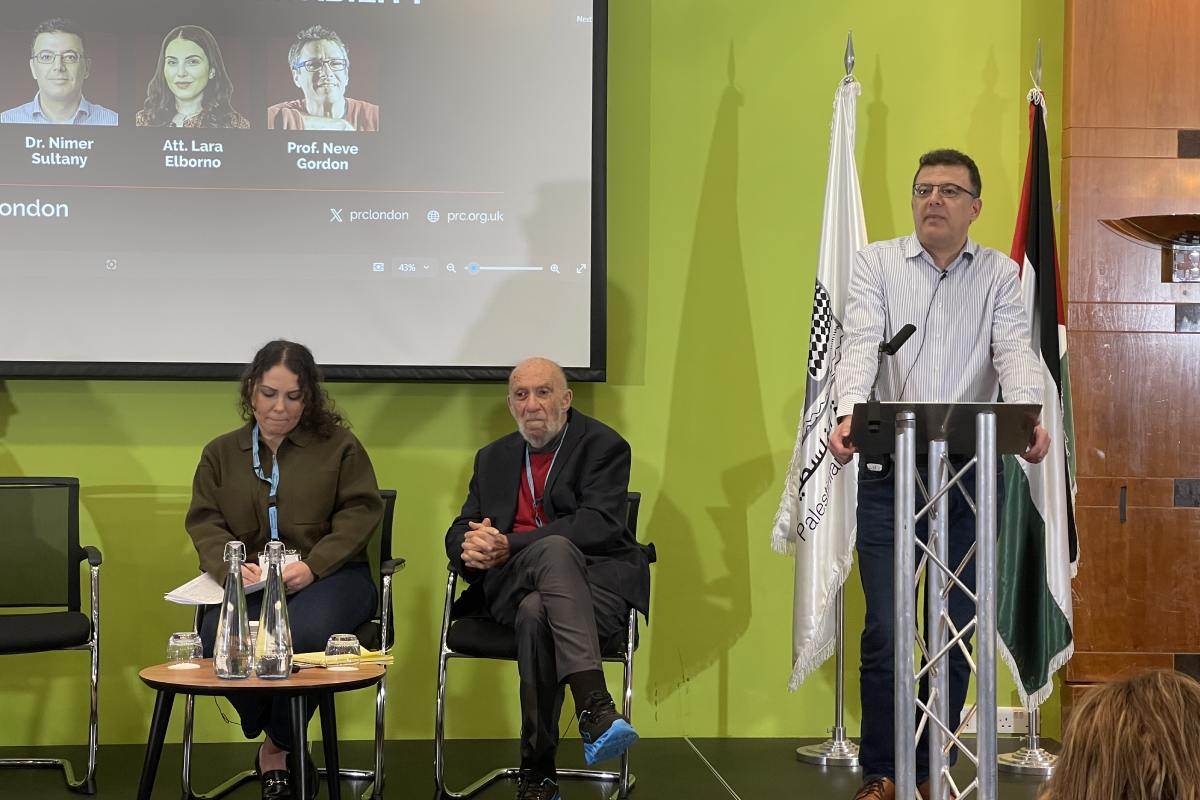
The Politics of Naming – Dr. Nimer Sultany
Dr. Nimer Sultany, Reader in Public Law of SOAS University of London, argued that the failure to promptly name the atrocities in Palestine—whether through delayed reports by human rights organizations or muted voices in public discourse—serves to prolong injustice. He noted that the late recognition of apartheid conditions and genocide, exemplified by Genocide Watch’s delayed statement, and others, undermines efforts to hold perpetrators accountable. Dr. Sultany highlighted that this postponement is not accidental but reflects political biases that silence early critical observers and distort the true scope of the crisis.
He further critiqued the imposition of overly high legal thresholds for defining genocide, citing Judge Trindade’s dissent in the ICJ case of Croatia versus Serbia. According to Dr. Sultany, such standards effectively reduce the Genocide Convention to a “dead letter,” enabling powerful states to evade accountability. In his view, naming is not mere semantics but a critical step in closing the enforcement gap and catalysing both legal and moral accountability for the atrocities unfolding in Gaza.
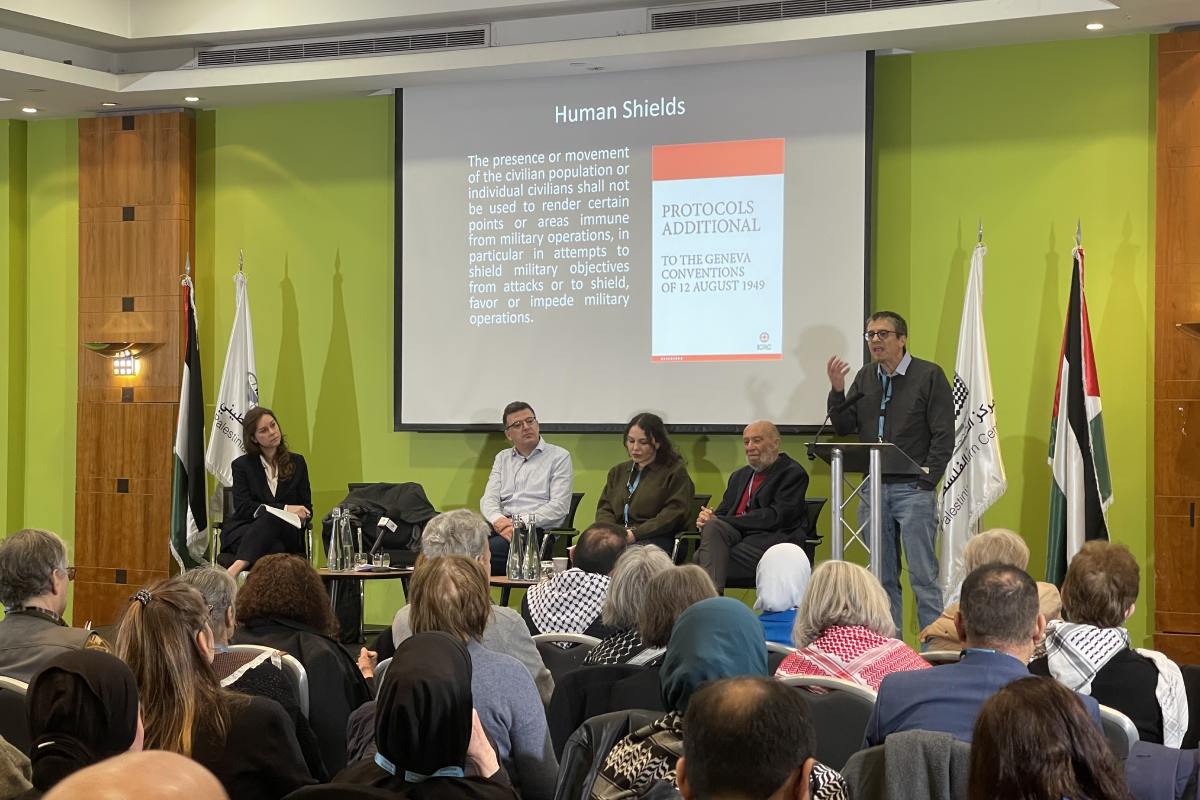
Rethinking Legal Bias – Prof. Neve Gordon
Prof. Neve Gordon from Queen Mary University of London provided a thorough critique of the state-centric bias in international law. He argued that since states create and enforce laws, these systems naturally favour state interests, neglecting marginalized communities such as Palestinians in Gaza.
Prof. Gordon explained that international law typically focuses on discrete events, like the bombing of civilian structures, while failing to account for underlying structural injustices and processes. He emphasized how legal constructs, such as “human shields” and the dual-use classification of civilian buildings, are manipulated to obscure the realities of settler colonialism and racialization. This legal framing, Prof. Gordon argued, not only weakens the law’s protective role but also serves to legitimize state violence against Palestinians. His analysis called for a transformation in how international law is applied, urging a more nuanced approach that challenges its current limitations and ensures justice for those suffering under ongoing colonial structures.
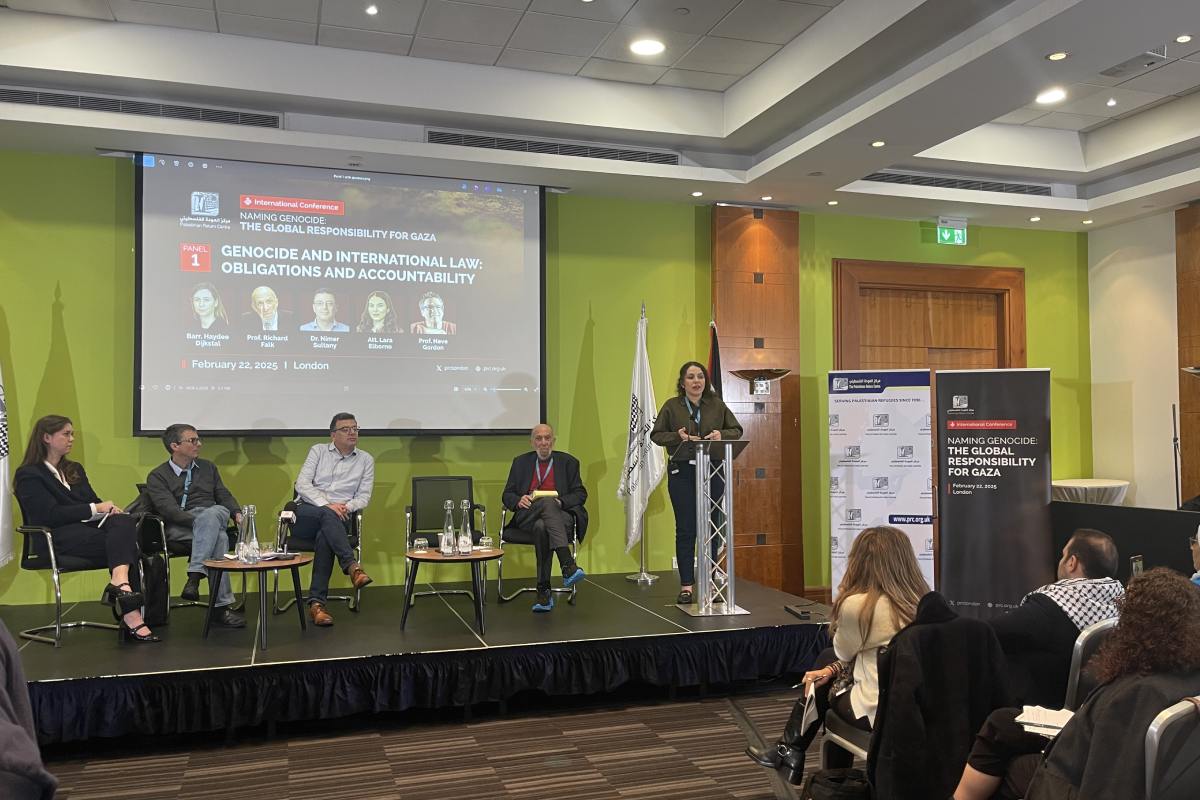
Reaffirming the Palestinian Narrative – Att. Lara Elborno
Att. Lara Elborno, a Palestinian-American international lawyer, passionately recounted how, almost immediately following Israel’s assault on Gaza, Palestinians began to label their lived experience as genocide. She noted that within days, the term “genocide”—or “ibad” in local parlance—became a ubiquitous descriptor among those enduring the violence, a fact that was later corroborated by leading scholars, including a prominent Jewish Israeli professor. While mainstream media and Western political discourse have often diluted or delayed this recognition, Att. Elborno underscored that the voices of those directly affected speak with undeniable clarity. She even highlighted, with a touch of ironic humor, how Israel’s use of animals as shields starkly symbolizes the extent of dehumanization, urging a broader coalition—including animal activists—to call out such absurd tactics.
She further argued that the only opinions that truly matter are those of the Palestinian people who face daily violence and the independent experts who have long documented these atrocities. For Att. Elborno, the rapid and unanimous acceptance of the term “genocide” by those on the ground forms a powerful call for accountability—a call that extends not only to the direct perpetrators in Gaza but also to Western sponsors and media complicit in perpetuating impunity. Emphasizing that the genocide is ongoing and has become alarmingly automated, she warned that the current measures, such as fragile ceasefires, are insufficient to halt the destruction. Instead, she called for a radical overhaul of global accountability mechanisms to ensure that the rights and lives of Palestinians are truly safeguarded.
The panel provided a comprehensive examination of the legal dimensions of genocide, laying a critical foundation for subsequent sessions that will address media representation and international solidarity. Through their diverse perspectives, the speakers underscored both the promise of international law as a tool for justice and its profound limitations when confronted with entrenched political and structural challenges. Their insights collectively call for a reinvigorated global effort to close the accountability gap and ensure that the rights and lives of Palestinians are upheld.
22 Feb 2025
